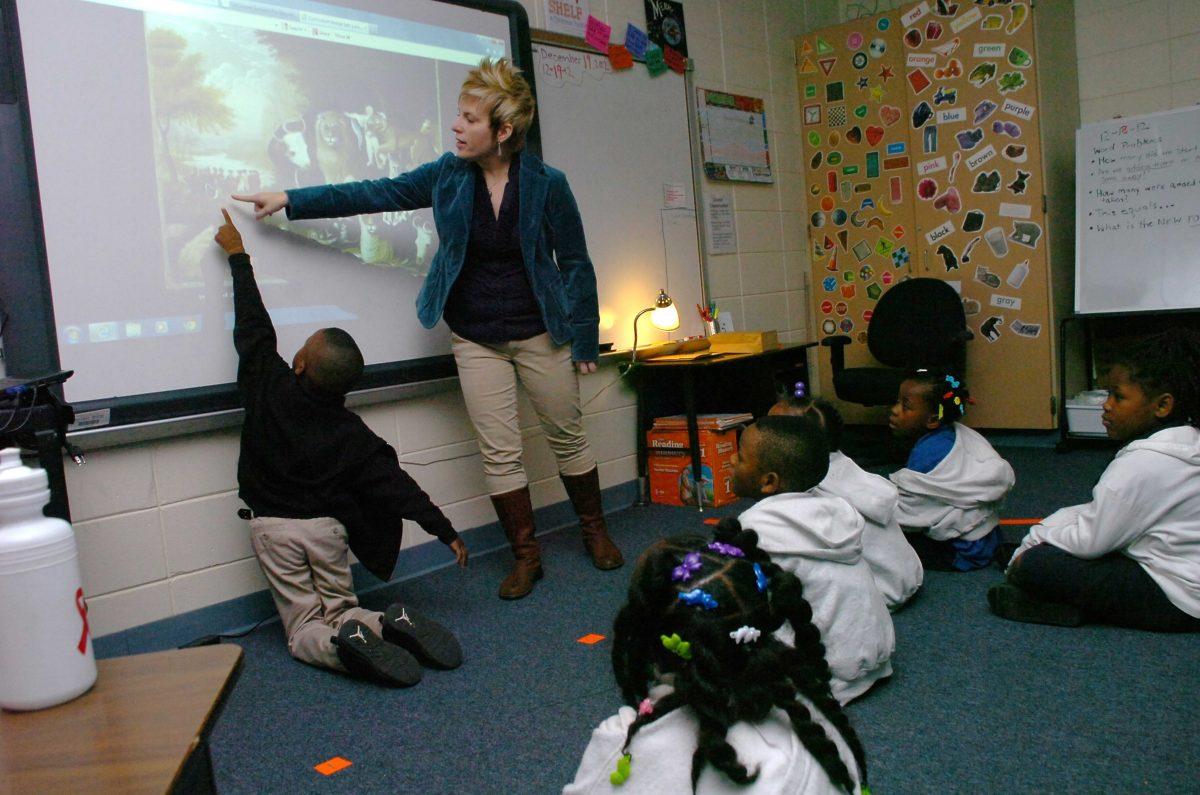Louisiana public education is plagued with problems.
Students aren’t graduating from high school, students who can’t read are being asked to write book reports, teachers either don’t care or are underpaid — you get the picture.
The state’s national education rank is pitiful: The National Center for Education Statistics ranks Louisiana 49th out of 50.
So how can it be fixed? Is there anything we can do to reverse this trend?
There is. But it will take some dramatic steps to get there.
The first step is getting students away from home. A student’s home life can be the biggest impediment to his or her education, according to Toni C., an elementary school counselor from central Louisiana, who requested to not divulge her last name.
“I’ve had kids come in to my office who have been on robberies with their parents,” Toni said. “One was left in the back seat of his dad’s car while the father robbed a quick stop.”
Toni said it’s common for students to have no electricity, no food or even no bedroom furniture at home. Doing their homework isn’t high on their priority list in many cases, and who can blame them?
This is a side of America most people never have to see, but in Louisiana, where nearly one in five families lives in poverty, it’s all too normal for a lot of students.
We should make each school day longer. The current school day roughly lasts from 8 a.m. to 3 p.m. By tacking on an extra two hours designated for homework and tutoring, part of the struggle some students face to do homework and study at home could be eliminated.
Louisiana should also restructure the focus of education for the elementary levels. Students need to master reading and writing before moving on to anything more complex than the most basic math and science.
Math and science are important, but can’t be understood unless you’re able to read.
Those extra two hours of school would benefit students at this stage of their education. Grouping students by ability during those two hours could help them feel as if they’re on par with others instead of feeling left behind or far ahead.
Teaching is also a major problem in public schools.
When I was in high school, I had a teacher offer to give us test answers if we gave her enough money. I also had a teacher admit he was teaching a subject he knew nothing about.
There are a lot of wonderful teachers in Louisiana, but there aren’t enough.
Teachers need to be paid more, plain and simple. If teachers made more money, better-qualified people would apply for the jobs. With more applicants, the competition would greatly increase the standard for a public school teacher.
Students should also go through individual counseling sessions at least twice per year.
Counselors should be empowered by the state to report anything they feel may show signs of abuse or negligence at home. This is incredibly important, because no matter what the education system does for a student, a bad home life can knock it out of them in a heartbeat.
Additionally, public schools should try to strengthen their ties with students’ parents.
A great example of how to do this would be offering free adult education nights at school. This would increase positive attitudes toward the school on the parent’s end, and it may even enable parents to help their children at home.
Altogether, these suggestions cost a lot of money. How can we pay for this when we’re cutting things every year to meet a budget?
The first thing we need to do is stop throwing new money at the current system — it’s not sticking.
This isn’t a Louisiana problem as much as a national mindset. In America, if something’s broke, just throw a couple hundred million dollars at it like Lil’ Wayne would.
The People: “Uh, Gov. Wayne, the education system seems to not be working. What do we do?”
Gov. Wayne: “Chehehehe, a milli, a milli, a milli, a milli…”
The problem with throwing a couple hundred milli at education is that the system, as I’ve just described at length, is completely broken.
Unsurprisingly, the second thing we need to do is fix the system.
Thirdly, the state should prioritize education.
Business development and health care are important and necessary expenditures, but education is the foundation for a successful state. We won’t have the intelligence to support ourselves if we aren’t careful. Then we’ll really need business development so everyone can get jobs mopping their floors.
The last tactic to making our education money count is to be smart with it. It seems easy, but we aren’t doing it now. We’re so focused on technology that we’re not focused on the basics. I’d rather halve the number of students who can’t read in an elementary school than have four computer labs.
As you can see, most of these suggestions are aimed at solving the unstable home problem.
We can educate children and young adults to the best of our abilities, but until we eliminate the influence of a bad life at home, Louisiana’s least-likely-to-succeed students will fulfill their expectations.
Editor’s note: This is part one of a two-part column on how to fix public education in Louisiana.







